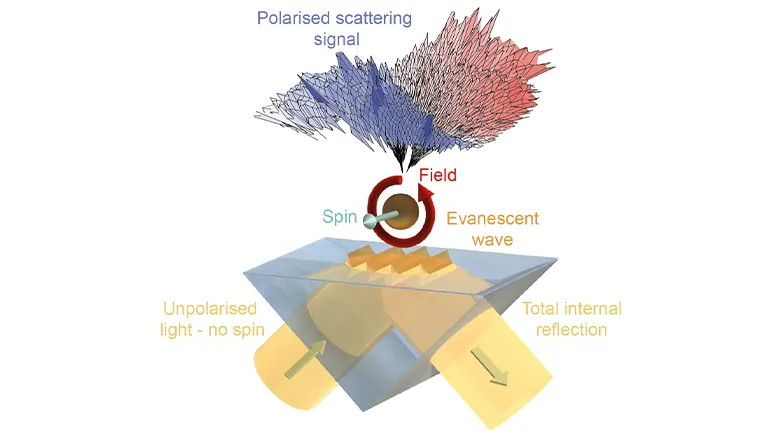I find it remarkable and exciting that such fundamental properties of light are still being discovered! But this phenomenon is not only interesting from the fundamental point of view – this research also provides a novel opportunity to use polarisation-independent spin from unpolarised sources in applied optics, including the optical manipulation of nano-objects or the separation of enantiomers, essential in the production of safe drugs.
Dr Diane Roth
01 February 2021
King's research illuminates new understanding on optical spin
Latest research from King’s physicists challenges common understanding of what photon spin is.

Photon spin has been understood as a feature of circularly polarised light. General understanding of this is based on accepted association between spin and polarisation – spin cannot occur without polarised light. However, new research has demonstrated that transverse spin can in fact be measured in unpolarised light – therefore demonstrating that this basic assumption is no longer valid.
The team’s research, published in in Nature Photonics and reported in Physics World, is result of an international collaboration with scientists across the London Centre for Nanotechnology, Japan, Germany, France and the US.
Researchers at King’s were able to experimentally observe the existence of transverse spin using evanescent fields generated in a glass prism by total internal reflection, and a simple light bulb as a source of unpolarised light. A challenge to experimental validation of the theory laid in the difficulty of sourcing completely unpolarised light bright enough for the effect to be measured, as usual lab light sources such as lasers are often polarised.
Dr Diane Roth, Research Associate at the Department of Physics, commented:
Find out more about this research from the London Centre for Nanotechnology.


